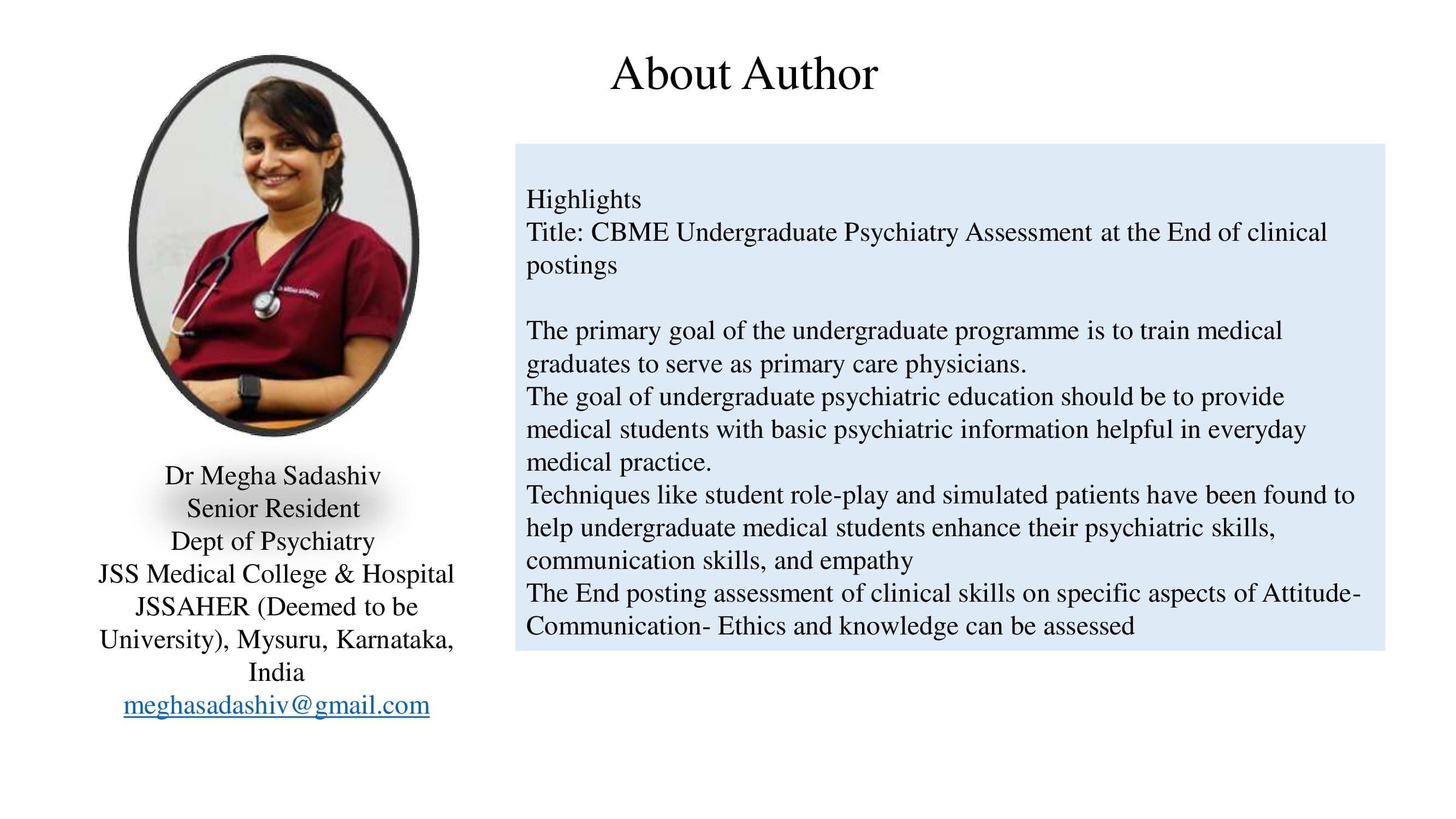Volume 12 Issue 5 May, 2022
Dr Megha Sadashiv

Most individuals with mental illness seek treatment from their family physician first. Unfortunately, most doctors cannot detect and treat psychiatric problems due to a lack of adequate training at the undergraduate level in India. The primary goal of the undergraduate programme is to train medical graduates to serve as primary care physicians. Patients with somatic illnesses often have accompanying psychological issues that require early diagnosis and professional intervention; as a result, psychiatry education at the undergraduate level becomes even more critical and relevant. Teaching psychiatry to medical students at the undergraduate level can significantly impact their perspectives on mental illness, minimizing stigma, ability to care, and enhancing empathy.
The importance of psychiatric training throughout undergraduate education is alarmingly low; Students are only expected to participate in a four-week clinical placement programme, as per the National Medical Commission guidelines, which excludes any kind of mandatory skill assessment in the final examination. The goal of undergraduate psychiatric education should be to provide medical students with basic psychiatric information helpful in everyday medical practice. Undergraduate psychiatric education, in particular, can help them develop communication skills and explain concepts of common psychiatric disorders in India and their implications so they can better comprehend patients and their diseases from biological, psychological, and sociocultural perspectives.
In undergraduate psychiatric education, many standard teaching approaches are challenging to implement. Hence, Techniques like student role-play and simulated patients have been found to help undergraduate medical students enhance their psychiatric skills, communication skills, and empathy. They appear to be highly regarded. These strategies teach comprehensive history taking and devise a management plan for common conditions. They can illustrate the ability to detect and refer to difficult clinical conditions (e.g., highly agitated patients) or unusual syndromes that would otherwise be overlooked during training.
The End posting assessment of clinical skills can begin with continuous evaluation of each student on specific aspects of ( AETCOM module) Attitude- Communication- Ethics format. Knowledge components can be assessed by multiple-choice questionnaires ( MCQs) based on all the clinical scenarios they were exposed to during the posting. Importantly, OSCE (objectively structured clinical examination )stations can be devised to assess expected skills in psychiatry. It is essential that students are involved and informed at every stage of clinical posting about the assessment. They should be exposed to assessment by mock examination in different planned formats. Feedback sessions will additionally go a long way to enhance the student’s experience in learning psychiatry, and it will boost teaching-learning methods.


Role play method of teaching…..